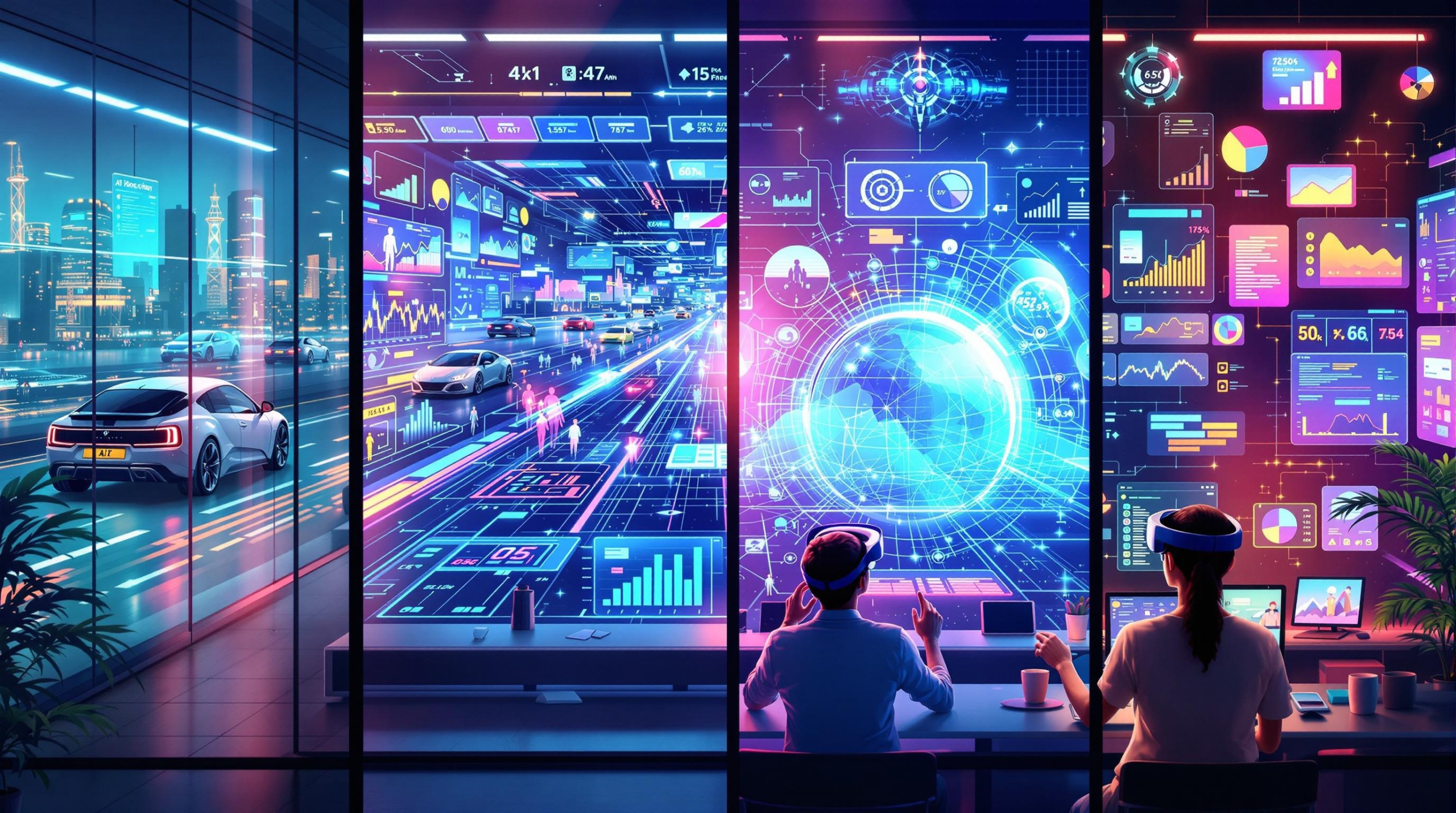
How AI is Revolutionizing Everyday Life: Practical Applications and Benefits
AI in Transportation

Artificial Intelligence (AI) is transforming the transportation industry in ways that make our daily commutes safer, faster, and more efficient. One of the most significant applications is in autonomous vehicles. Self-driving cars, powered by AI, use advanced sensors, cameras, and machine learning algorithms to navigate roads, avoid obstacles, and reduce human error, which is a leading cause of accidents. AI is also optimizing public transportation systems by analyzing traffic patterns and passenger data to improve schedules and reduce congestion. Additionally, AI-powered logistics systems are streamlining supply chains, ensuring goods are delivered more quickly and efficiently. From ride-sharing apps that use AI to predict demand and match drivers with passengers to smart traffic lights that adapt in real-time to traffic flow, AI is revolutionizing how we move through the world. These advancements not only save time but also reduce environmental impact by cutting down on fuel consumption and emissions.
AI in Retail and E-Commerce

Artificial Intelligence (AI) is transforming the retail and e-commerce landscape, making shopping experiences more personalized, efficient, and enjoyable. One of the most significant applications of AI in this sector is personalized product recommendations. By analyzing customer behavior, purchase history, and preferences, AI-powered systems can suggest products tailored to individual needs, increasing customer satisfaction and boosting sales. Additionally, AI is revolutionizing inventory management by predicting demand trends and optimizing stock levels, which helps businesses reduce waste and ensure products are always available. Chatbots and virtual assistants are also enhancing customer service by providing instant responses to queries, assisting with purchases, and even resolving complaints. Furthermore, AI-driven visual search allows customers to upload images and find similar products, making the shopping process more intuitive and engaging. For businesses, AI tools help analyze market trends, optimize pricing strategies, and detect fraudulent transactions, ensuring smoother operations. In short, AI is reshaping retail and e-commerce by creating smarter, more efficient, and customer-centric experiences.
AI in Finance

Artificial Intelligence is transforming the finance industry in remarkable ways, making financial processes smarter, faster, and more secure. One of the most significant applications is fraud detection. AI algorithms analyze vast amounts of financial data in real-time to identify unusual patterns or anomalies, helping institutions prevent fraudulent activities. Additionally, AI-powered credit scoring systems are revolutionizing how creditworthiness is assessed, offering more accurate and fair evaluations. Another game-changer is algorithmic trading, where AI processes market data at lightning speed to execute trades with precision. Moreover, robo-advisors are becoming increasingly popular, providing automated, personalized financial advice based on users’ goals and risk tolerance. These advancements not only enhance efficiency but also empower individuals to make better financial decisions, ensuring a safer and more accessible financial ecosystem for everyone.
AI in Entertainment

Artificial Intelligence is transforming the entertainment industry in remarkable ways, making our experiences more immersive, personalized, and enjoyable. For instance, AI is used in content recommendation systems on platforms like Netflix, Spotify, and YouTube. These algorithms analyze your viewing or listening habits to suggest content tailored to your preferences, saving you time and enhancing your experience. In addition, AI is revolutionizing video game development by creating smarter, more adaptive NPCs (non-playable characters) and generating realistic graphics. It’s also being used in movie production for script analysis, special effects, and even de-aging actors. Moreover, AI-powered tools are enabling artists and creators to produce music, animations, and digital art with greater efficiency and creativity. From virtual concerts to AI-generated storylines, the entertainment industry is evolving rapidly, offering endless possibilities for innovation and engagement.


